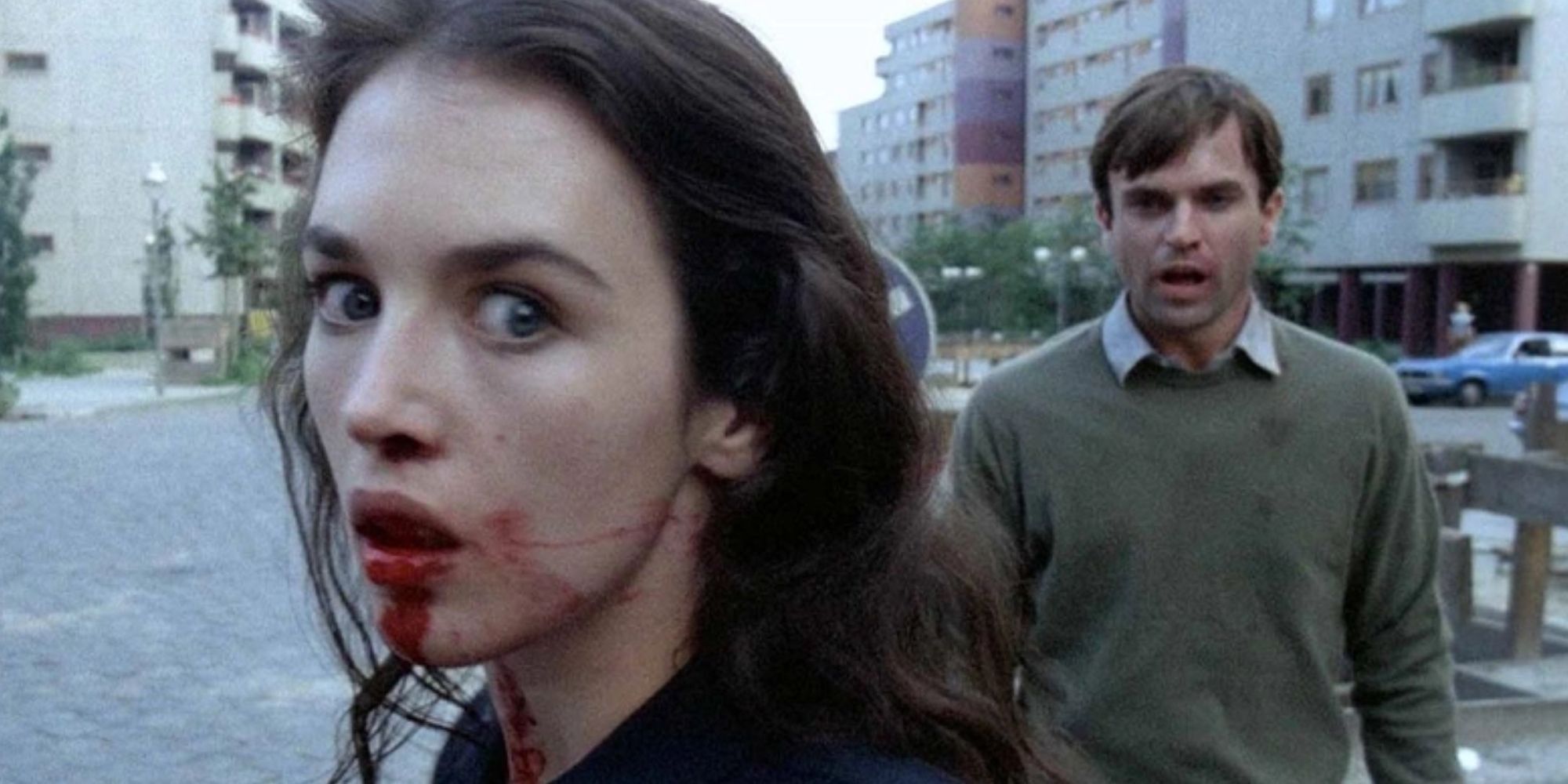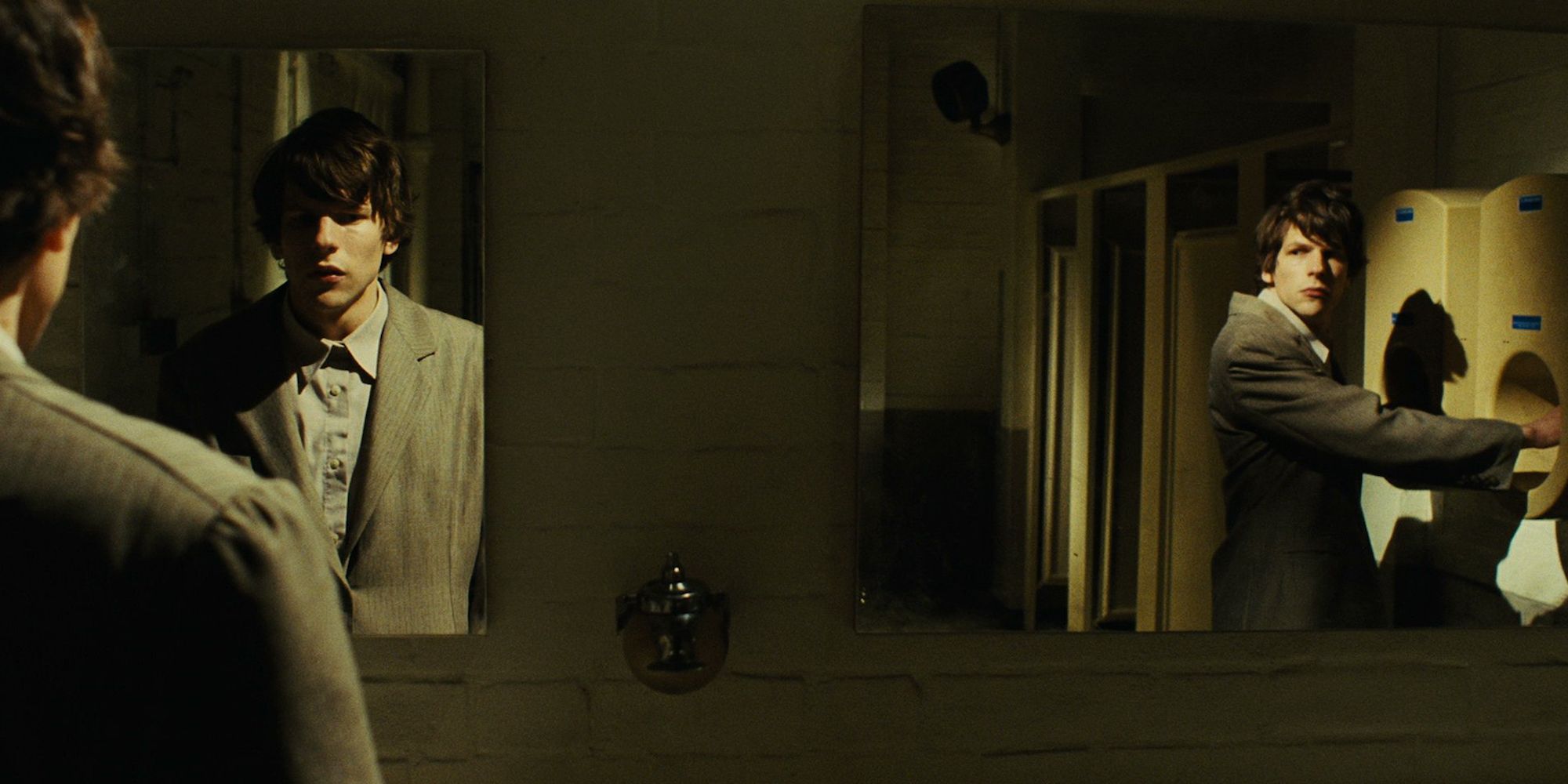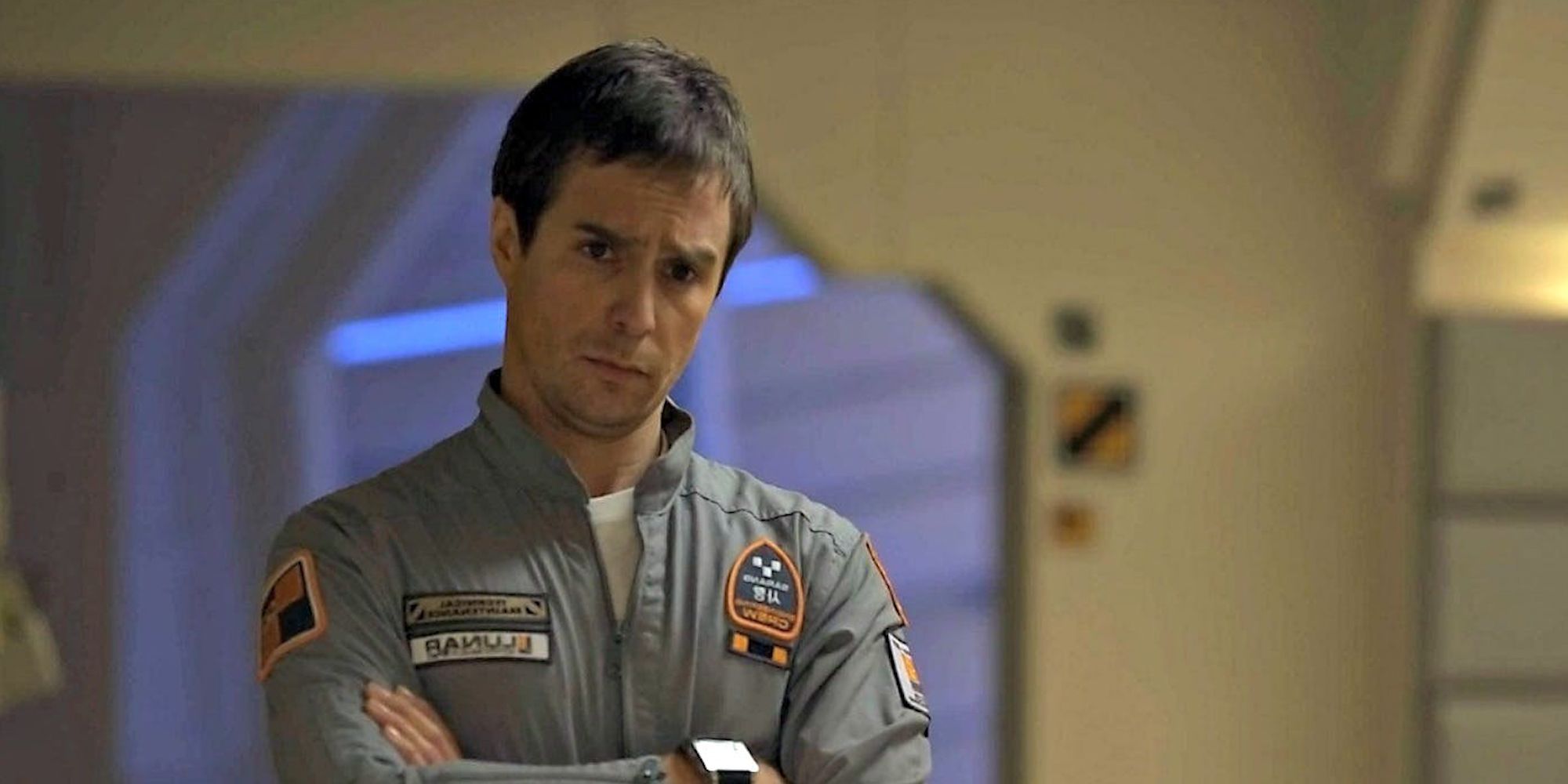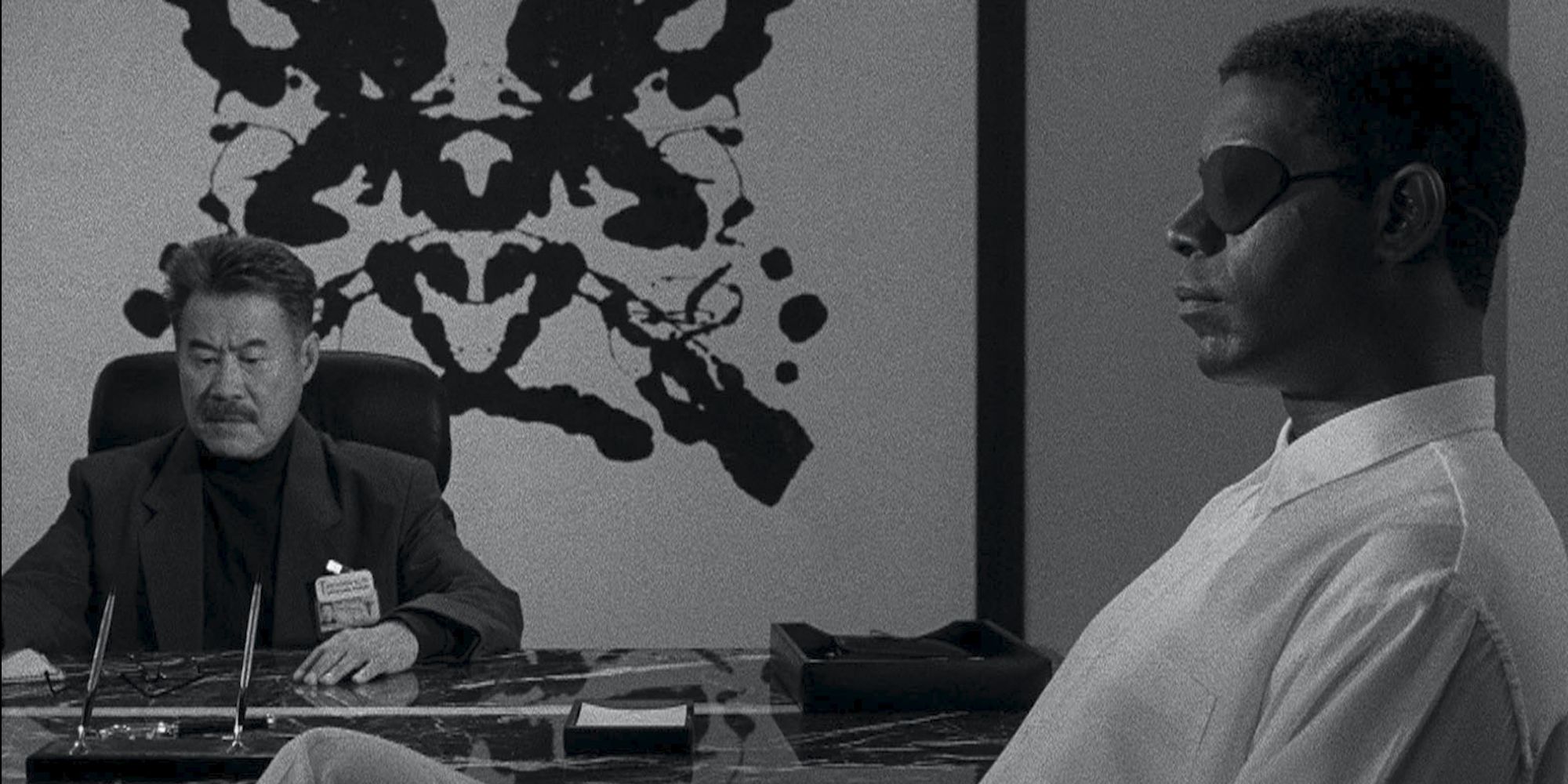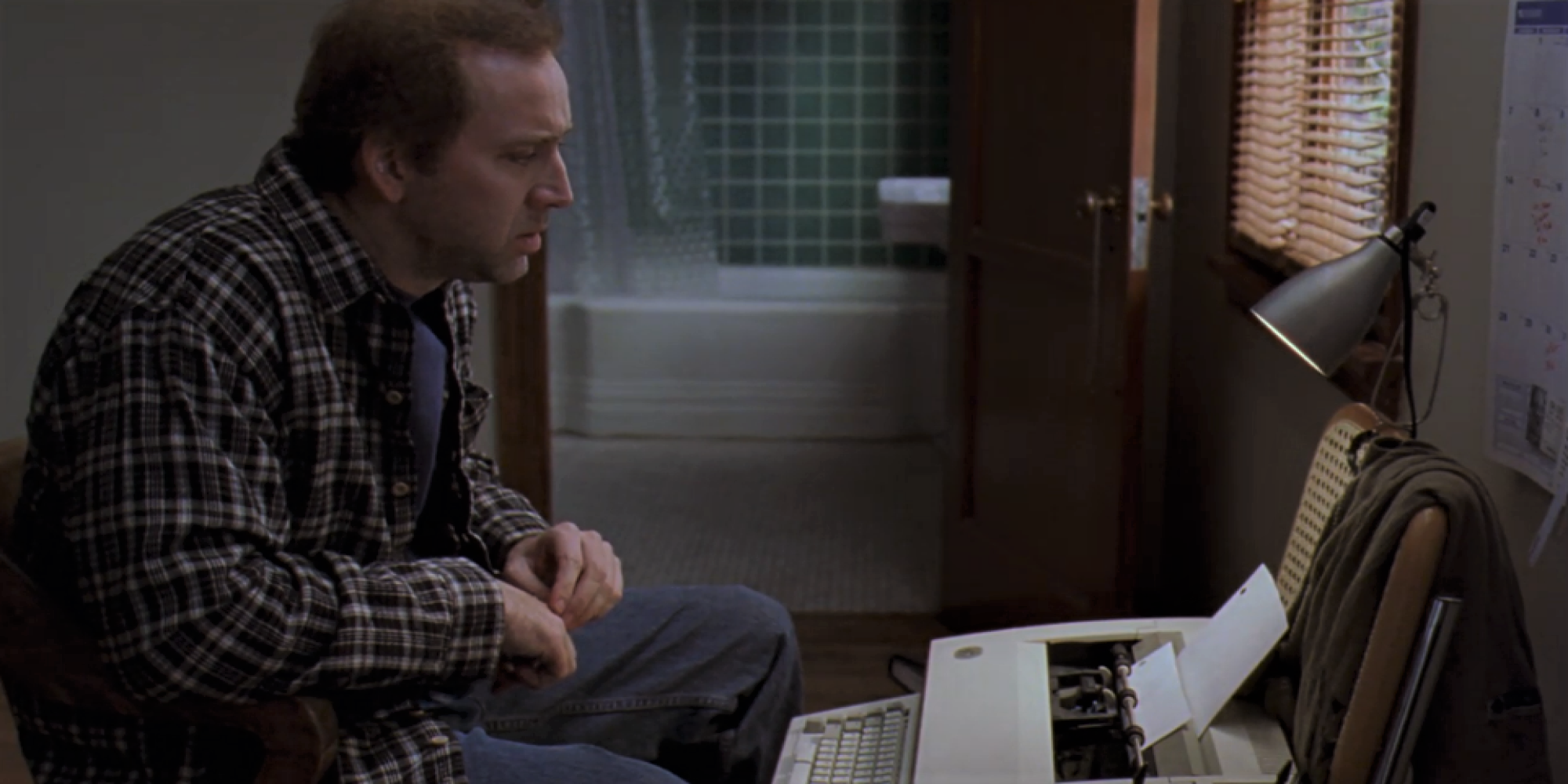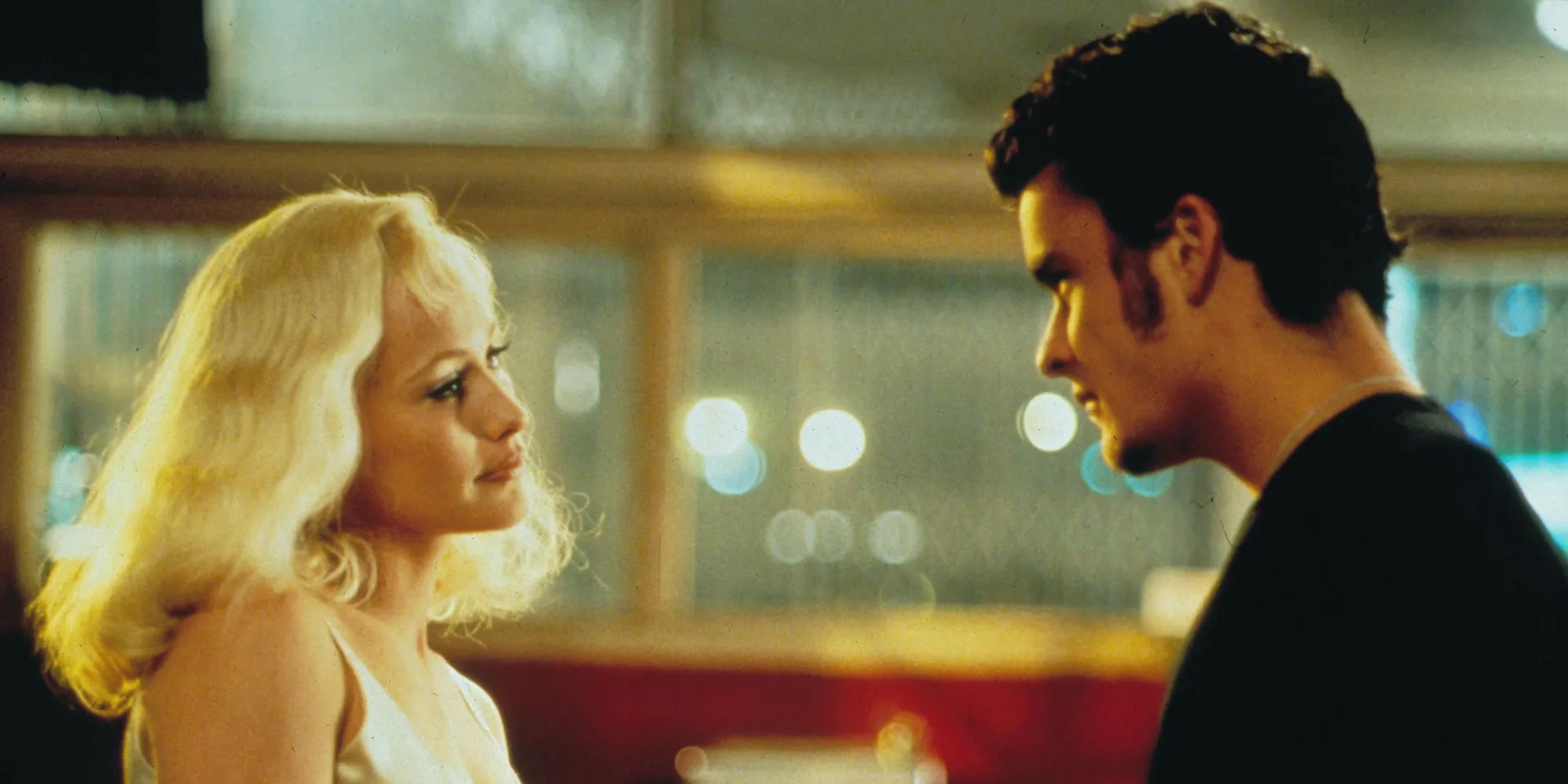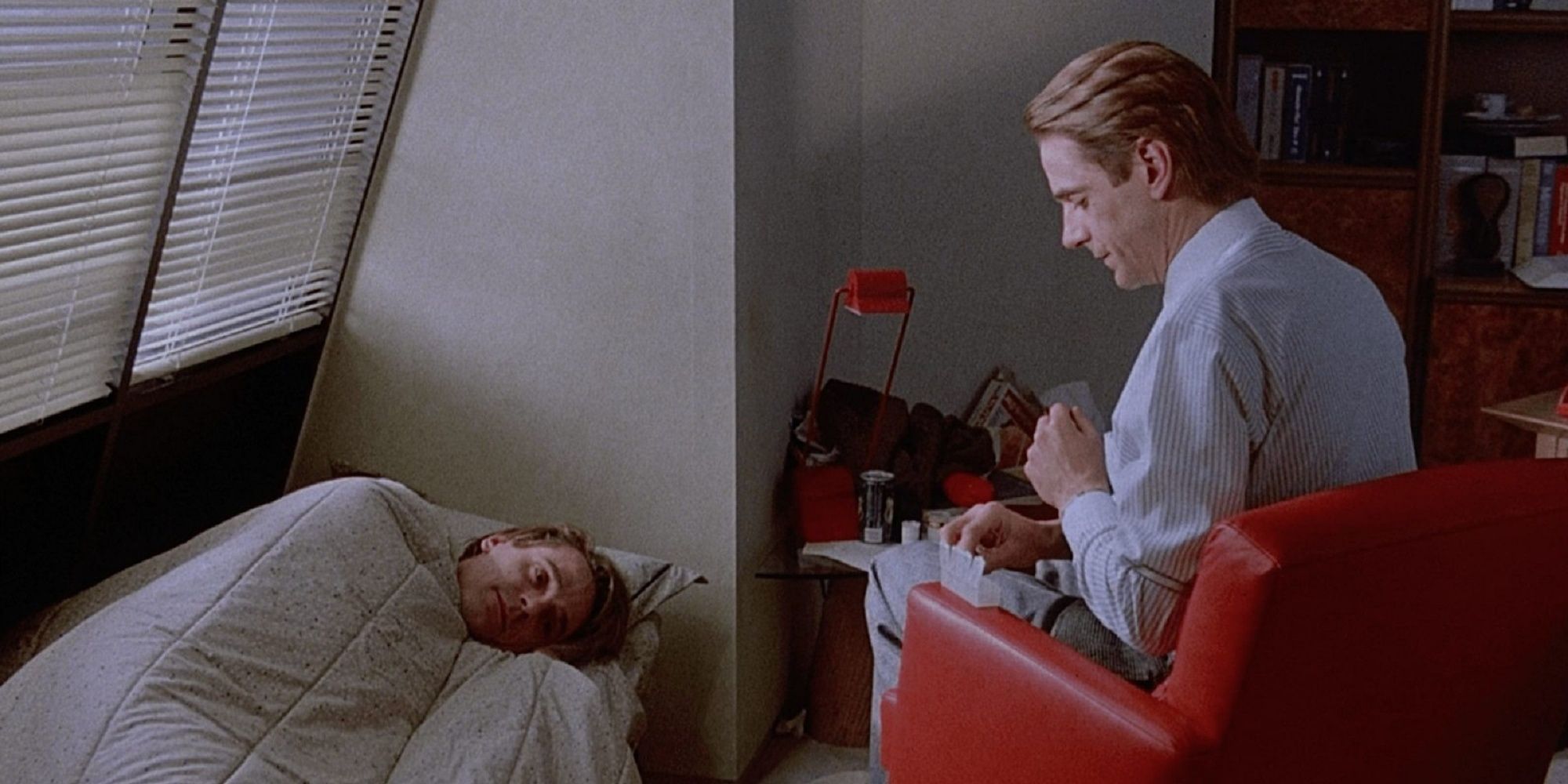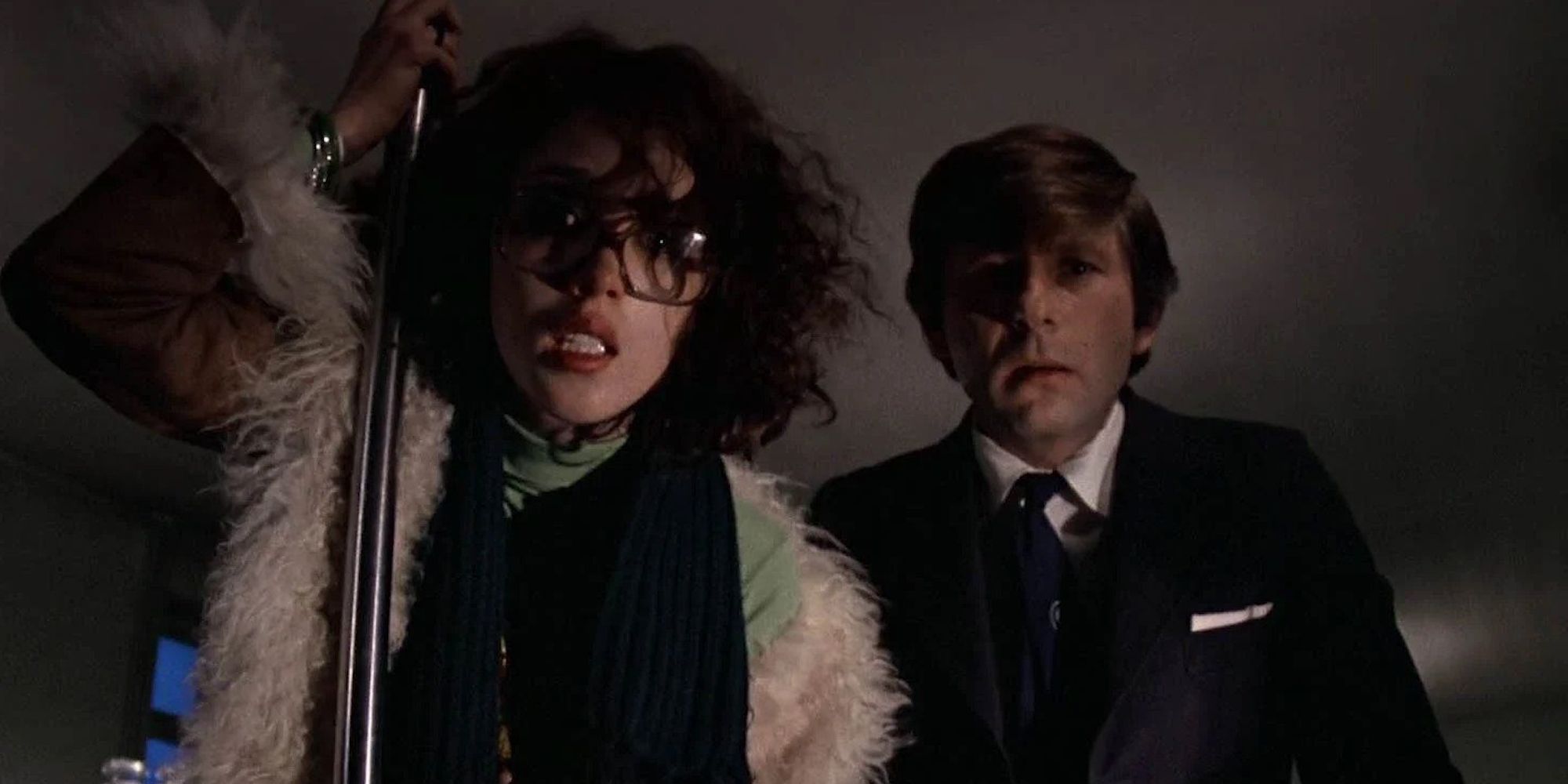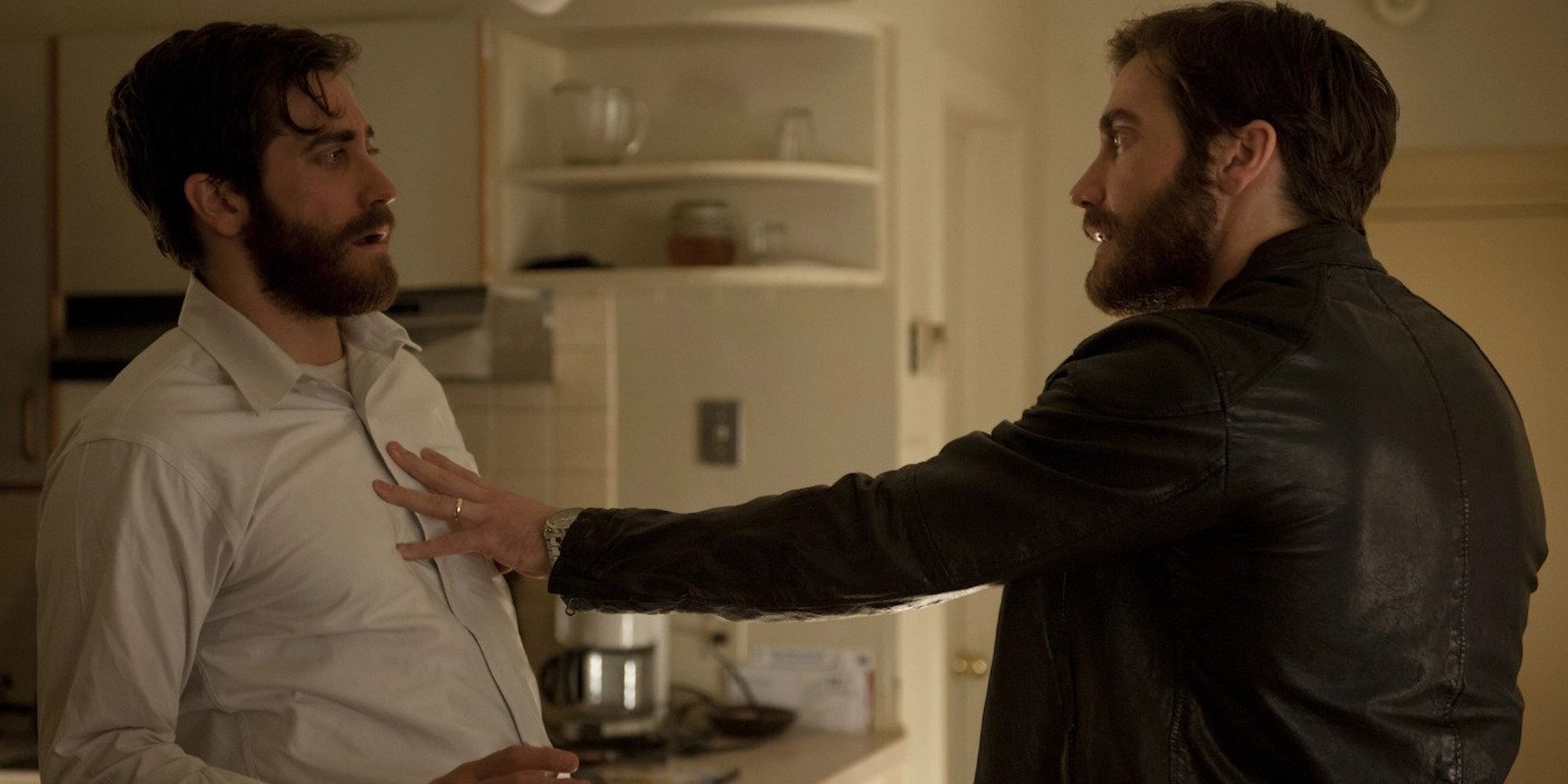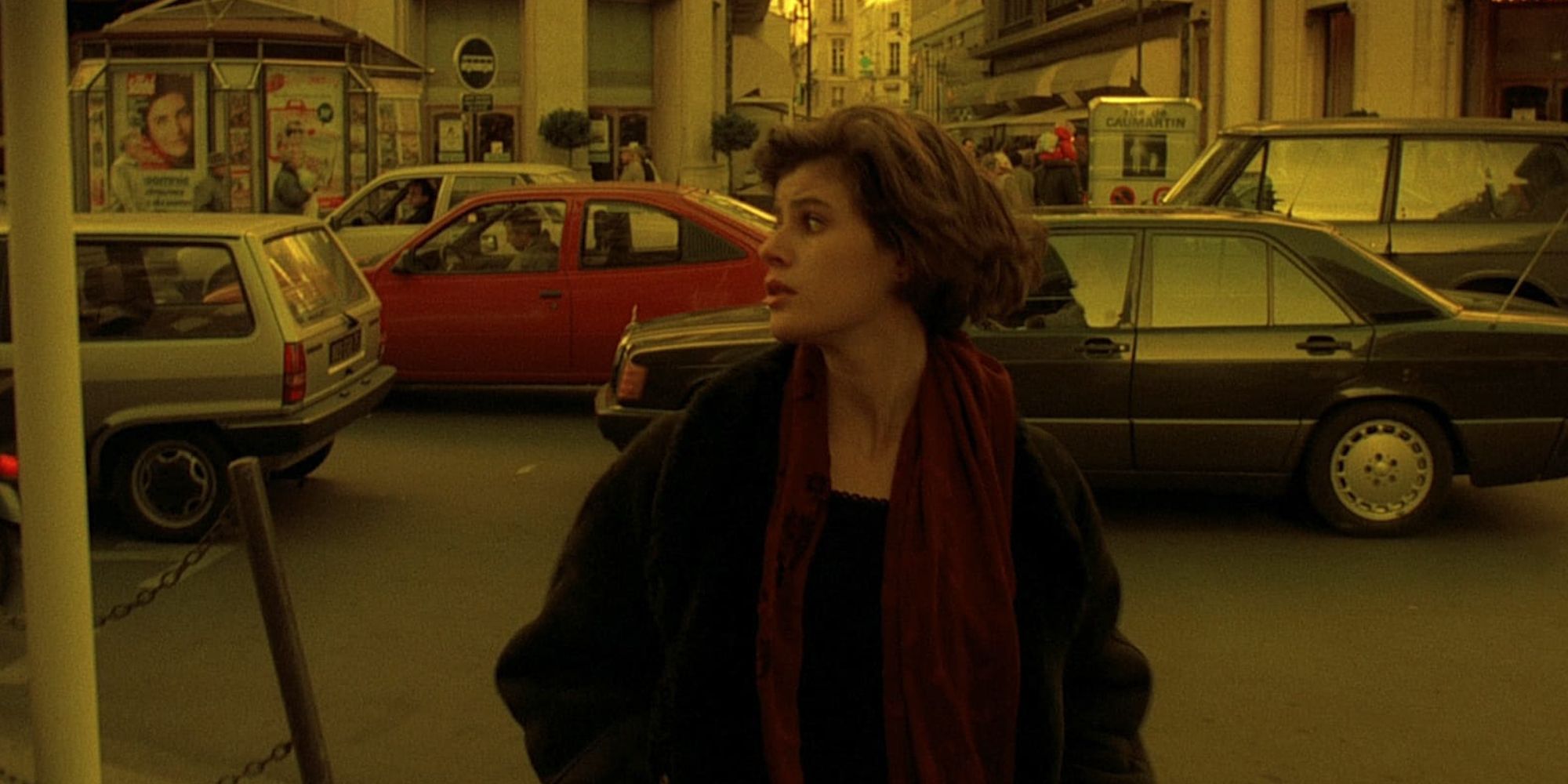The idea of the doppelgänger, a perfect clone of a person, goes back centuries in mythology and folklore. It's also been a common trope in cinema since practically the beginning of the medium. Doppelgängers were a recurring idea in Alfred Hitchcock's thrillers, for example, especially Vertigo. Brian De Palma and David Lynch have also explored doppelgängers multiple times in their work, to significant effect.
In recent years, filmmakers have used doppelgängers as sources of horror, social satire, and character studies. Jesse Eisenberg, who has played doppelgangers on-screen, has said that the concept is popular because "coming face to face with different selves of yourself is unnerving." At their best, the doppelgänger can be a powerful metaphor for confronting the unsavory aspects of our personalities.
The following article may contain minor spoilers for the films discussed.
'The Double' (2013)
Simon (Jesse Eisenberg) is shy, nervous, disrespected by his boss, and adrift in life. He quietly pines after his co-worker Hannah (Mia Wasikowska). However, things take a turn for the surreal when a new employee named James shows up at the office. He looks exactly like Simon, except his personality is the complete opposite. He's confident, assertive, and a little Machiavellian. His presence turns Simon's life upside down, and he struggles to make sense of the situation.
The Double is a quirky black comedy loosely based on the novel of the same name by Fyodor Dostoyevsky. It succeeds thanks to the perceptive humor of writer-director Richard Ayoade. He is perhaps most well-known for playing Moss in the TV series The IT Crowd, but he's also an underrated director of comedy dramas, including the excellent Submarine. "The thing Dostoyevsky said is that everyone has a side to themselves that they show to the world and one that they show to their friends and one they show to their loved ones," Ayoade says, explaining what drew him to the project. "And one that they show to themselves and one that they can’t show to themselves."
'Moon' (2009)
Sam (Sam Rockwell) is an employee working on the moon, overseeing a helium mining operation. He is the only person there, with just a robot named GERTY (Kevin Spacey) for company. He's on a three-year contract and is set to return home to earth soon. However, the situation turns nightmarish after Sam crashes his lunar rover. When he wakes up, he finds a clone of himself in the space station. This revelation casts doubt on everything Sam thought he knew—about his mission, the corporation he works for, and himself.
What makes Moon such a unique and powerful sci-fi is its focus on Sam's emotional response to this situation. It eschews flashy special effects and action and delves into what it would feel like to be in Sam's shoes. His discovery of his doppelgänger brings about an existential crisis. Who is this clone? What is its purpose? And, most importantly, who is Sam?
'Suture' (1993)
Suture is a bizarre movie. It follows two half-brothers, Vincent (Michael Harris) and Clay (Dennis Haysbert). The other characters in the movie act as if these two men look the same, even though the actors do not. One is black; the other is white. Vincent attempts to murder his brother, but Clay survives and sets out for revenge.
It makes for a classic Hitchcockian double-reverse, where Clay ends up masquerading as Vincent. "Suture grew out of the films we were watching together at the time: some Japanese art films from the 60s, and also American paranoid thrillers, and every twin film we could get our hands on," explains co-director David Siegel. "We were thinking a lot about identity as a construct, and how film constructs identity; and certain narrative tropes started interesting us: hypnosis, twins, amnesia."
'Adaptation' (2002)
Adaptation is the second collaboration between Spike Jonze and Charlie Kaufman, two of the most idiosyncratic filmmakers at work today. It stars Nicolas Cage as Charlie Kaufman, who is struggling to write a screen adaptation of The Orchid Thief, a real book by Susan Orlean. At the same time, Charlie's twin brother Donald (also played by Cage) begins his own screenplay.
Eventually, the brothers cross paths with Orlean (Meryl Streep) herself and stumble upon a conspiracy involving the use of the ghost orchid for mind-altering purposes. Soon, both their lives are at risk. It's a thoroughly meta black comedy about identity and the creative process. "It was a struggle for me in the first six months," Kaufman has said about writing Adaptation. "Until I came up with the idea of putting myself in, and then suddenly I knew how to write it."
'Lost Highway' (1997)
Lost Highway is one of David Lynch's most surreal movies, and that's saying something. Musician Fred Mason (Bill Pullman) begins receiving mysterious VHS tapes of himself and his wife (Patricia Arquette). In one of the tapes, Fred can be seen standing over his wife's dead body. He is arrested for her murder but is then inexplicably replaced in jail by a young mechanic named Pete (Balthazar Getty). Like many of Lynch's movies, it operates on dream logic, making it hard to summarize.
Lynch has said that the film was inspired by the concept of a "psychogenic fugue." "The person suffering from it creates in their mind a completely new identity, new friends, new home, new everything," he explains. "They forget their past identity."
'Dead Ringers' (1988)
Dead Ringers is a psychological thriller from body horror maestro David Cronenberg. It stars Jeremy Irons as a pair of twin gynecologists (he plays both characters). The twins are brilliant but twisted. They deceive women into thinking they are with one of them when they are dealing with the other. They are also unusually close. As the film's tagline says: Two bodies. Two minds. One soul.
Irons carries the movie. He succeeds in making each twin unique and plays them both with subtlety and surprising depth. Dead Ringers is based on a B-movie premise, but Irons and Cronenberg have enough skill to transform it into a genuinely unsettling, slow-burn horror.
'Possession' (1981)
Possession is a Polish psychological horror about Mark (Sam Neil), a spy, and Anna (Isabelle Adjani), his wife. There is a recurring doppelgänger motif throughout the film, with both lead characters eventually being replaced by doubles. Beneath the scares, Possession is also a political commentary about life under Soviet rule.
It made a loss at the box office and received mixed reviews. However, it has since become a cult movie and is widely regarded as one of the best horrors of the 1980s. It mixes the gore of Cronenberg's The Brood with the relationship drama of Ingmar Bergman's Scenes from a Marriage—and throws in some tentacled monsters for good measure.
'The Tenant' (1976)
This psychological horror was Roman Polanski's follow-up to Chinatown and the third entry in his "Apartment Trilogy," following Repulsion and Rosemary's Baby. Polanski stars as Trelkovsky, a man who rents an apartment in Paris whose previous occupant attempted suicide. Mysterious events begin to take place in the building, and Trelkovksy's life soon descends into paranoia and confusion.
The Tenant received negative reviews on release, with Roger Ebert calling it an "embarrassment." Since then, its reputation has improved significantly, and it has become a cult film. While it doesn't reach the heights of Polanski's best work, it's still a tense, slow-burning thriller worth seeing.
'Enemy' (2013)
"Chaos is order undeciphered." Enemy is Dennis Villeneuve's weirdest movie—and one of his best. It stars Jake Gyllenhaal as Adam, a history lecturer who sees a man in a movie who looks exactly like him. He tracks his lookalike down, but this only raises more questions. At the same time, a mysterious cult seems to be spreading its malign influence throughout the city.
The story is full of twists and turns, with a bombshell ending to boot. It explores paranoia and conspiracy theories, anchored by Gyllenhaal's performance and Villeneuve's stylish direction. It's sure to linger on the viewer's mind long after the credits have rolled.
'The Double Life of Veronique' (1991)
The Double Life of Veronique is a drama directed by the great Polish filmmaker Krzysztof Kieślowski, who made the Three Colors trilogy and the Dekalog miniseries. His movies tend to feature complex characters grappling with ethical dilemmas, and The Double Life of Veronique is no exception. It depicts parallel storylines following two identical women (played by Irène Jacob), one in France and one in Poland.
The movie wouldn't work if not for Jacob's excellent dual performance. She subtly manages to make the two characters distinctive, each with their gestures and tone of voice. It makes for a powerful drama, which is also cryptic and open to interpretation. Reportedly, a fan once asked Kieślowski what the film meant. "If I tell you what I think of the film," the director replied. "I think I would lack your respect."

